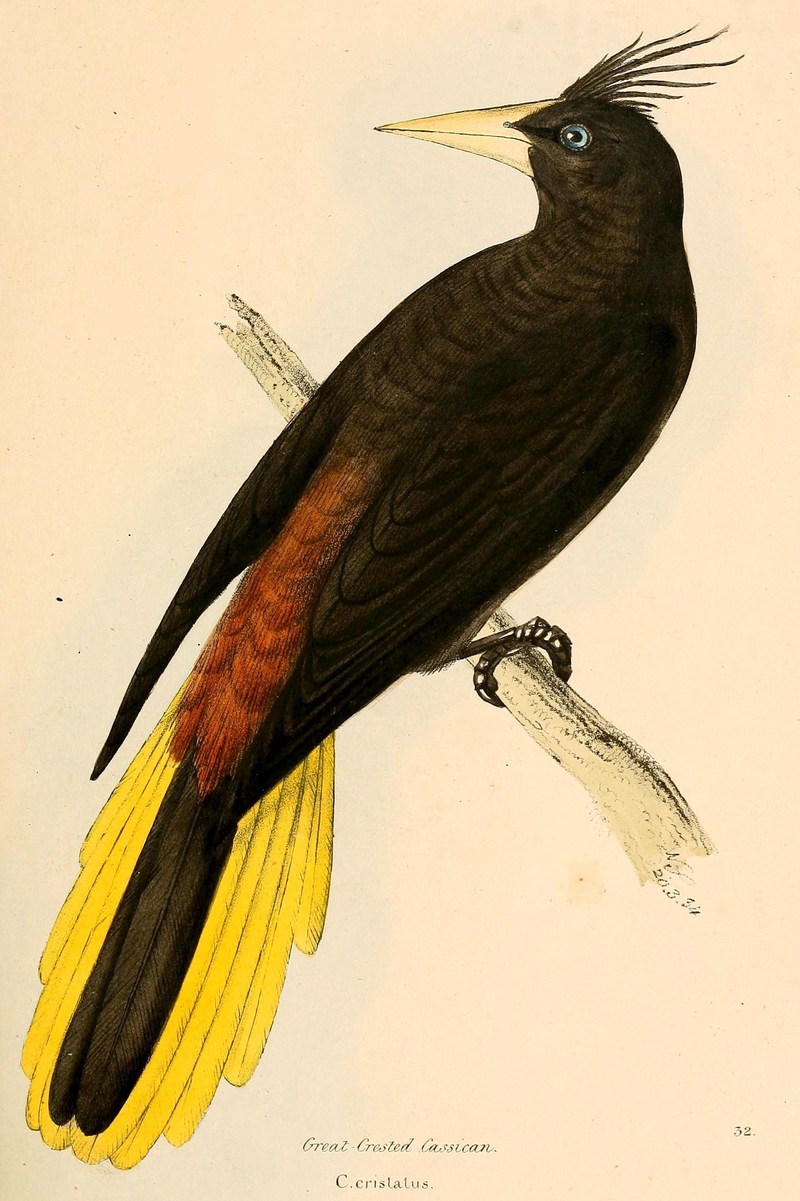|
| Query: birds of america | Result: 534th of 1888 | |
crested oropendola (Psarocolius decumanus)
| Subject: | crested oropendola (Psarocolius decumanus)
| | Poster: | Wiki Photos (---@---.---)
| |

| Resolution: 1948x2924
File Size: 843028 Bytes
Date: 2012:02:28 17:34:30
Upload Date: 2017:03:08 01:33:04
|
ERROR : Server Busy(-1105)
ERROR : Server Busy(-1105)
crested oropendola (Psarocolius decumanus)
Description
English: Cassicus cristatus = Psarocolius decumanus (Crested Oropendola)
Français : Cassicus cristatus = Psarocolius decumanus (Cassique huppé)
Date 1841
Source A selection of the birds of Brazil and Mexico http://www.archive.org/stream/selectionofbirds00swai#page/n137/mode/2up
Author William Swainson (1789-1855)
Source: https://commons.wikimedia.org/wiki/File:Psarocolius_decumanus_1841.jpg
The crested oropendola also known as the Suriname crested oropendola or the cornbird (Psarocolius decumanus) is a New World tropical icterid bird. It is a resident breeder in lowland South America east of the Andes, from Panama and Colombia south to northern Argentina, as well as on Trinidad and Tobago.
|
Comments |
|---|
| | Guest |
|
Scientific Name: Psarocolius decumanus (Pallas, 1769)
Common Names: Crested Oropendola
French: Cassique huppé German: Krähenstirnvogel Spanish: Cacique Crestado
Taxonomy: Xanthornus decumanus Pallas, 1769, Suriname. |
^o^
Animal Pictures Archive for smart phones
^o^
|
|
|

